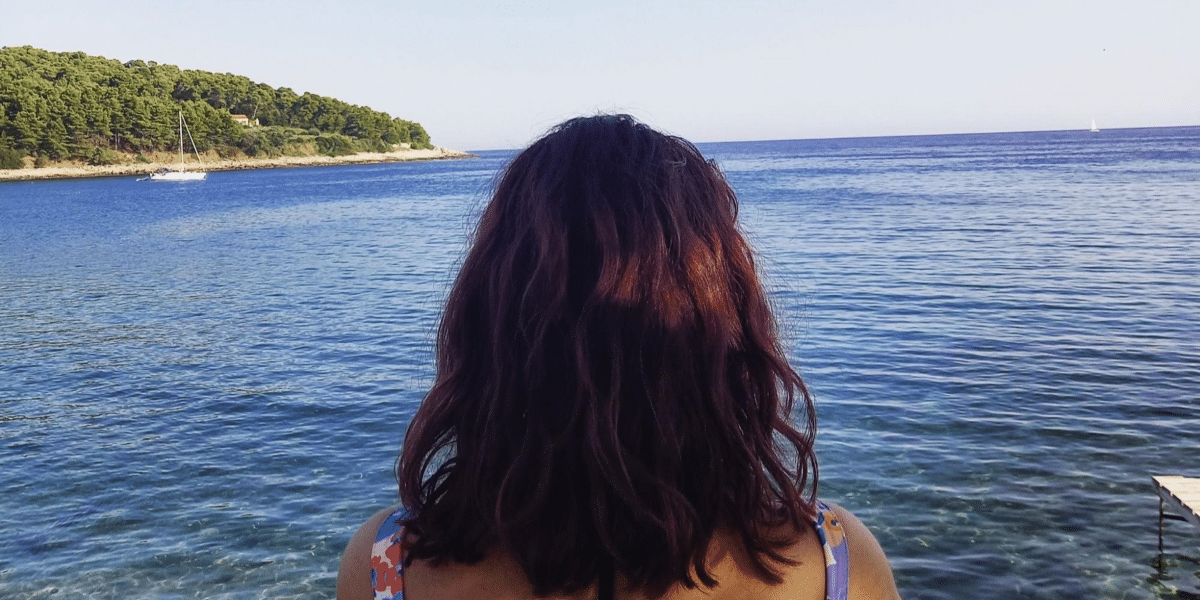By: Mayara Morelli
“I’m looking for a unicorn!” Well, it’s not exactly like 27-year-old Nina Portolan is literally searching for a unicorn. Still, it’s how she feels being a disabled person and having to navigate the system. Born and living in Serbia, she explains that it’s very complicated for disabled people to live as they want – which is nothing less than their rights. And unfortunately, this is something we can see all over the world.
Even basic things like crutches are difficult to find in the right type that each individual needs. “I have been using forearm crutches for more than 15 years. The first ones were plain, with an open cuff and wooden handles. They provided me with security at school and became the basis of my independent movement. However, it didn’t take long, and the handle fell off. Immediately after that, I received imported crutches from abroad with plastic, closed cuffs and a movable joint. I learned everything I could do today without help, thanks to them. Everything that I can do is with them in my hands. Like many people with disabilities, I see my aid as an extension of my body.”, says Nina. The inequality in treatment that she witnessed her parents (and herself) endure when she was young further fueled her determination to bring about change in how people with disabilities are perceived and treated.
“‘And when are you going to throw away those crutches?’ That’s a sentence that accompanied my growing up. Every time, I would feel uncomfortable standing there in front of an adult, and I would have no idea what to answer. There would be that feeling of emptiness in my stomach.”
Nina’s journey from being a disabled person to becoming a human rights activist has been fueled by a deep-seated passion for global issues, such as climate change, which she developed from a very young age. However, as she matured, her awareness of inequality grew, becoming one of her main motivators. She credits much of her inspiration to her mother, who instilled in her a strong sense of caring for others. Yet, reflecting on her past experiences, Nina also recognizes that the mistreatment she faced from the system and the lack of empathy and understanding from those around her, who often dismissed her struggles, played a significant role in her advocacy journey.
As a high school teenager, Nina developed an interest in human rights and volunteering. However, she faced numerous challenges finding the right information and opportunities to get involved. It often felt like a series of closed doors, and despite not experiencing direct bullying, she was frequently ignored and spent much of her time feeling isolated. Despite being raised to believe in equality and that her disability didn’t define her, the harsh realities of discrimination and inequality were hard to ignore. “Years later, I will hear my colleague and dear friend say, ‘We are not disabled by our bodies; we are disabled by an environment that excludes us and discriminates against us.’ At first, I did not believe it to be 100% true, but quickly, I would see how right he was. I came to realize I am never frustrated by my disability, only by barriers society puts in front of me.”
Nina’s journey reflects a profound shift from facing closed doors to becoming a symbol of resilience and empowerment. Despite the challenges she encountered in accessing sports due to her disability, she discovered karate by chance in 2016 at the age of 19. Becoming part of the karate club “Evropa” led her to Sensei Livius Bunda, one of the pioneers of Parakarate. By 2018, Nina’s talent propelled her to the national team, earning her over ten gold medals and garnering media attention.
However, her journey wasn’t without emotional hurdles. In May 2018, she had to use a wheelchair to compete in the Senior European Karate and Parakarate Championships, which initially felt like a personal failure due to societal ableism. This experience challenged her views and spurred her activism.
In January 2019, Nina spoke publicly about the importance of sports accessibility for disabled individuals, realizing the impact of her voice. Her activism took a significant turn after attending a study session on independent living and disability rights, organized by ENIL and EYMH. This transformative experience marked the beginning of her advocacy work.
Nina’s dedication to advocacy led her to participate in various initiatives, including volunteering with ENIL and attending international programs on disability rights and human rights education. Her involvement expanded to board memberships and advisory roles, allowing her to advocate on a broader scale across Europe.
Despite starting her activism journey later than some, Nina’s unique perspective as a disabled athlete has fueled her advocacy for social inclusion, equality, and access for all. She emphasizes that disability is not a limitation but a part of her identity, urging society to recognize individuals beyond labels and stereotypes.
“Accessibility to allow a person to live their life equal to others can feel like disabled people are given a cookie (special treatment), for some people. In reality, we are only making it possible for everyone to have a cookie by making things accessible.” Her message resonates not just within the disabled community but across diverse spheres, inspiring others to embrace their identities and work towards a more inclusive world.
















